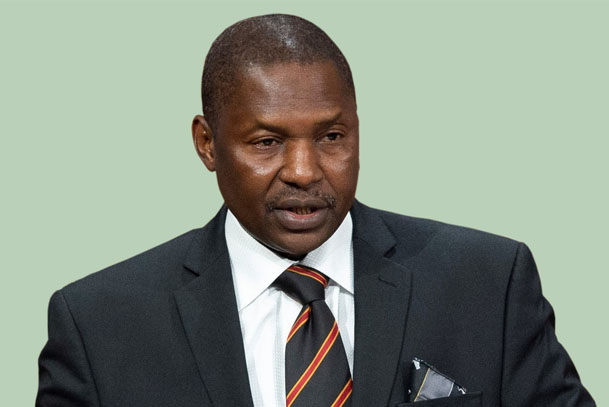ECONOMY
FEC approves establishment of Agency for management of recovered assets

The Federal Executive Council (FEC) has approved the transmission of a Proceeds of Crime Recovery and Management Agency Bill to the National Assembly to facilitate the establishment of an Agency for recovered assets.
The Attorney General and Minister of Justice, Abubakar Malami, stated this when he briefed State House correspondents on the outcome of the 15th virtual meeting of the Council, presided over by President Muhammadu Buhari in Abuja on Wednesday.
He said the bill when approved by NASS, would ensure the establishment of the agency which would be saddled with the responsibility of managing all recovered assets across the country.
He said: “The Office of the Attorney General and the Federal of Ministry of Justice presented a Council memo today.
“The Council memo is about a bill which will seek the approval of the Council to transmit to the National Assembly for passage
“It is a Proceeds of Crime Recovery and Management Agency Bill. It is in essence a bill that is targeted at intended to have in place a legal and institutional framework.
“The legal component of it is having a law and the institutional component of it is to have an agency that will be saddled with the responsibility of managing the assets that constitute the proceeds of crime in Nigeria.
“What happened before now was that the proceeds of crime were scattered all over and mostly in the hands of different and multiple agencies of government inclusive of the Police, the DSS, EFCC, ICPC.
“So, with that kind of arrangements, which is adhoc, there is no agency of government that is saddled with the responsibility of data generation, an agency that can give you off head the number of landed assets, number of immovable assets, the amount in cash that are recovered by the Federal Government by way of interim forfeiture over weigh of a final forfeiture.
“So it is indeed over time a kind of arrangement that is not uniform and consistent.
“So, what this law seeks to do is to move the fight against corruption to the next level; next level of transparency; next level of accountability and in essence have in place an agency of government that is exclusively responsible for anything proceeds of crime.
“So, a one-stop-shop arrangement by which all assets that are recovered arising from crimes that are indeed vested in the federal government – you have a one-stop-shop arrangement where you can have an information.’’
Malami dismissed the assertion that the proposed agency was informed by the fallout of the ongoing investigation of the activities of the suspended acting chairman of the EFCC, Ibrahim Magu.
The Minister of Finance, Budget and National Planning, Dr Zainab Ahmed, who also spoke on the outcome of the meeting, said she presented a memo to council in respect of the second quarter GDP report.
The report was earlier released by the National Bureau of Statistics on Aug. 24.
She said: “The GDP report shows that the economy went into negative growth of -6.10 per cent in the second quarter but that the aggregate performance for half year 2020 is -2.1per cent.
“This performance of -6.10per cent is a good performance in the sense that it is better than what we have projected second quarter performance to be at -7.2per cent.
“This performance also is a good performance because it outperformed the projections that had been done by the Brentwood institutions but it also outperformed very developed economies of the world and also economies that are comparable to us.
“The US for example went into negative growth of 33per cent for the second quarter 2020 and 19per cent half year 2020.
“Similarly, the UK, Canada, Italy and several countries of the world all went into very significant negative growth.’’
The minister, therefore, noted that Nigeria’s economy had shown some level of resilience in this level of performance.
She disclosed that the ministry also reported to Council that even though out of the 46 sectors of the economy, 30 of these sectors showed negative growth but there were still some sectors that were growing on the positive territory.
According to the minister, these sectors include agriculture as well as financial services and the ICT services.
“This is actually showing that even during the COVID-19 era, there were still some sectors that stood firm and indeed were growing.
“The inflation was also reported to be moving up gradually, capital Information did not dry up despite the lockdown and the difficulties all countries experienced.
“But this is reflected by the significant decline in capital importation into the country.’’
She also noted that the exchange rate had moved up from 326 dollars at the beginning of the quarter to 367dollars.
Other interventions meant to stabilize the economy, according to her, include intervention funds for small, medium enterprises to be able to borrow; intervention funds for health sector as well as intervention funds for infrastructure.
“All of these are designed to ensure continuous economic activities help to stabilize the economy.
“We are lucky that these things were rolled out early reducing the impact of the negative growth,’’ she added.




 Davido's Net Worth & Lifestyle
Davido's Net Worth & Lifestyle 
